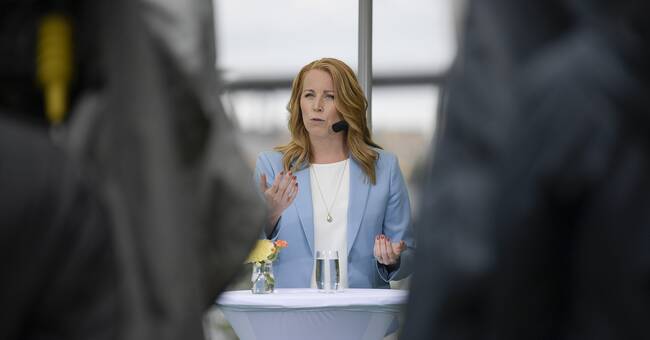Reducing employer contributions has long been a matter of the heart for the Center Party. The idea is that with reduced employer contributions, companies will employ more and fewer people will go unemployed.
But many economists are skeptical of the proposal and believe that it is a measure that costs the state a lot of money and that the effect is difficult to assess.
During the days of the Alliance Government, the Center Party succeeded in pushing through reduced employer contributions for young people, despite the then Minister of Finance Anders Borg (M) being hesitant. At the time, the reduction applied to those between 19-26 years of age and was one of the measures that the Social Democratic opposition in the Riksdag criticized the most. But economists and other experts have also described it as expensive and inefficient.
Proposals cost eleven billionAs soon as the new red-green government got the chance after the 2014 election, this reduction in employer contributions was also abolished.
But now it may be time again, even if the current proposal has a slightly different design. The Center Party wants the general payroll tax for young people up to the age of 24 to be abolished completely. It costs the state more than eleven billion kronor and will in that case be included in the upcoming budget.
There is much to suggest that this will be the case. It would be strange if Annie Lööf in her first major political speech after parental leave so clearly pushes a political demand that she has not already anchored with other January parties.
Minister of Finance skepticalThe Center Party believes that the measure will lead to more young people getting jobs and refers to a new report from SNS. But it is no secret that Minister of Finance Magdalena Andersson (S) is deeply skeptical of the measure.
However, the Center Party's support is vital for Stefan Löfven to be able to remain in the post of Prime Minister. To ensure continued power, the Social Democrats are forced to give the Center Party a good pay for parliamentary support.
This means that there will probably also be reductions in income tax for low- and middle-income earners in the coming budget. Here, too, the center leader was very concrete in his summer speech. The proposal has been driven by both the Center Party and the Liberals, and when Magdalena Andersson participated in Aktuellt this evening, she no longer rejected the measure.
Will face difficult choicesCenter leader Annie Lööf was met on social media by cheers from her supporters when she made a comeback on Saturday after her parental leave. But it is no easy task for her, even if the party gets a hearing for important parts of its policy in the coming budget.
As the next election begins to approach, Annie Lööf will be faced with difficult choices. The crucial thing is whether she wants to continue on the path taken with the Social Democrats or try again to breathe life into bourgeois cooperation?
So far, there are no signs that the Center Party wants to break off cooperation with the Social Democrats. On the contrary, many center-right parties are happy with how it has developed. The party has had a great impact on its policy and has not taken much beating in public opinion.
At the same time, the old alliance friends the Moderates and the Christian Democrats have increasingly approached the Sweden Democrats, which is a move Annie Lööf will probably never be able to carry out, at least not without a difficult betrayal debate.
On the other hand, Annie Lööf promised in 2013 to rather eat her right shoe than to become a support wheel for the Social Democrats. She did, although the payment so far has been good.

